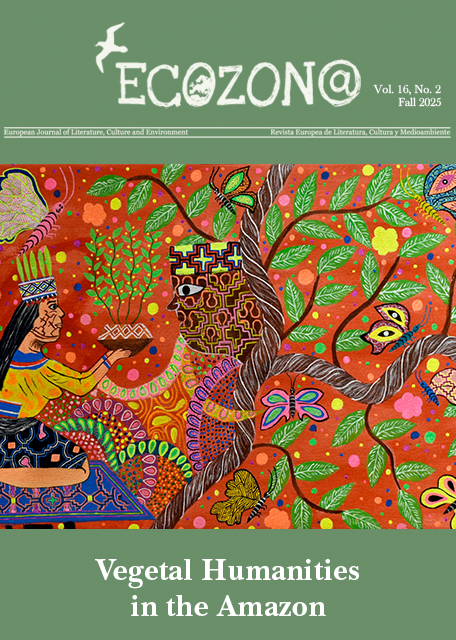Thinking Globally, Acting Locally: Ecology and Human Rights in Gioconda Belli’s Waslala
DOI:
https://doi.org/10.37536/ECOZONA.2020.11.1.3242Schlagworte:
Gioconda Belli, Human Rights, EcocriticismAbstract
Gioconda Belli’s futuristic novel Waslala reveals the many tensions that arise when one explores human rights within a context of planetary ecological crisis. While the novel criticizes human exploitation of natural resources and the resultant differential development and economic inequality, at the same time it affirms access to and control of resources as a fundamental human right. Using Steve Stern and Scott Straus’s framework of the “human rights paradox” and Jason Moore’s description of the “Capitalocene,” I argue that Waslala demonstrates two fundamental tensions between human rights and environmental issues. First, the novel shows how attention to the universal principles of global ecological balance may undermine the human rights of individuals constrained by geography or economic class. Second, it demonstrates how the human right to property is implicated in global ecological crisis. Although Waslala purports to privilege human rights over ecological concerns, at the same time it highlights the impossibility of separating the two, prompting a rethinking of the definition and practice of human rights within the context of global ecology.
Downloads
Downloads
Veröffentlicht
Ausgabe
Rubrik
Lizenz
Authors who publish with this journal agree to the following terms:
a) Authors retain copyright and grant the journal right of first publication with the work simultaneously licensed under a Creative Commons Attribution License that allows others to share the work with an acknowledgement of the work's authorship and initial publication in this journal (CC BY-NC for articles and CC BY-NC-ND for creative work, unless author requests otherwise.
b) Authors are able to enter into separate, additional contractual arrangements for the non-exclusive distribution of the journal's published version of the work (e.g., post it to an institutional repository or publish it in a book), with an acknowledgement of its initial publication in this journal.
c) Authors are permitted and encouraged to post their work online (e.g., in institutional repositories or on their website) prior to and during the submission process, as it can lead to productive exchanges, as well as earlier and greater citation of published work (See The Effect of Open Access).










